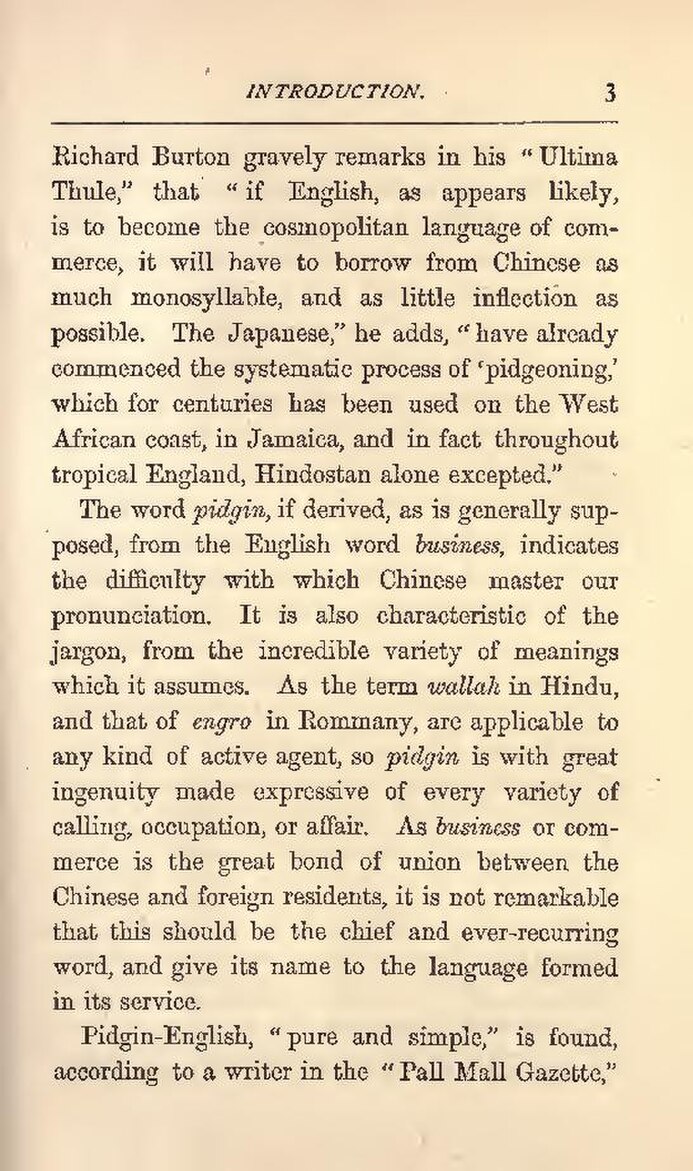Richard Burton gravely remarks in his "Ultima Thule," that "if English, as appears likely, is to become the cosmopolitan language of commerce, it will have to borrow from Chinese as much monosyllable, and as little inflection as possible. The Japanese," he adds, "have already commenced the systematic process of 'pidgeoning,' which for centuries has been used on the West African coast, in Jamaica, and in fact throughout tropical England, Hindostan alone excepted."
The word pidgin, if derived, as is generally supposed, from the English word business, indicates the difficulty with which Chinese master our pronunciation. It is also characteristic of the jargon, from the incredible variety of meanings which it assumes. As the term wallah in Hindu, and that of engro in Rommany, are applicable to any kind of active agent, so pidgin is with great ingenuity made expressive of every variety of calling, occupation, or affair. As business or commerce is the great bond of union between the Chinese and foreign residents, it is not remarkable that this should be the chief and ever-recurring word, and give its name to the language formed in its service.
Pidgin-English, "pure and simple," is found, according to a writer in the "Pall Mall Gazette,"
